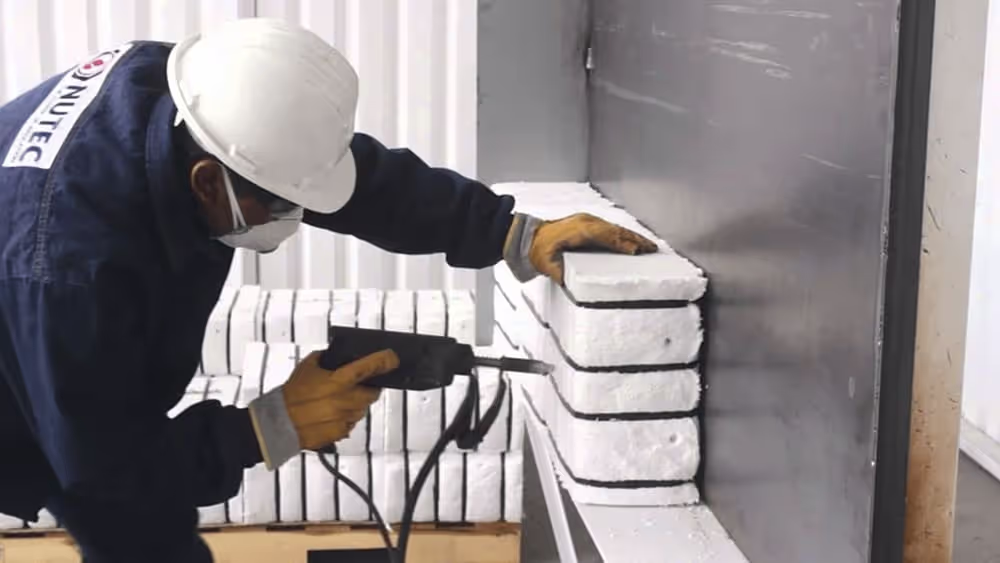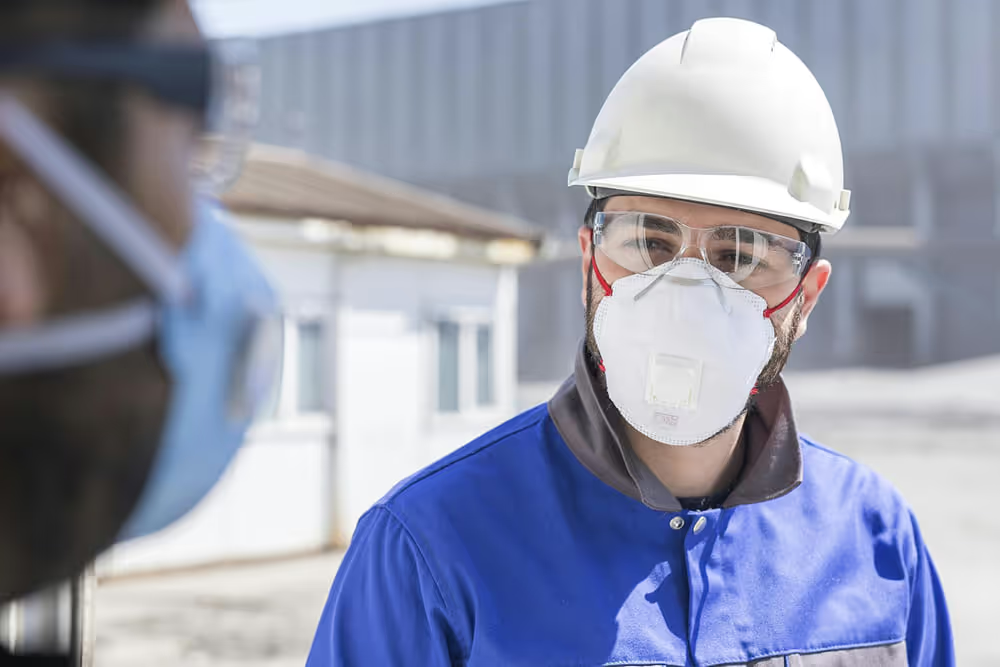
English (Global)
Article
Industrial Safety Measures in the Use of Thermal Insulating Products
Learn about industrial safety measures when handling thermal insulating products. Mitigate risks and optimize efficiency in high temperature environments.
Industrial safety is essential in any workplace where thermal insulation products are used. These protocols protect workers and ensure the efficiency of industrial processes exposed to high temperatures. However, handling thermal insulation products can be dangerous if adequate safety measures are not in place.
This article will cover the key safety aspects of handling these products and how to mitigate the associated risks.
What are industrial thermal insulation products?
They are products developed to provide thermal insulation in industrial settings and applications involving high temperatures and extreme conditions. These are designed to meet specific heat resistance, durability, and thermal efficiency requirements in environments with more rigorous demands than in conventional applications.
They are commonly employed in various sectors, including the chemical, oil, gas, energy, metallurgical, automotive, and general manufacturing industries.

What are the types of insulating products available for the industrial sector? Find out the answer here.
Risks and challenges
Handling thermal insulation products carries certain inherent risks due to their unique properties. As mentioned above, these are designed to resist high temperatures and maintain effective thermal insulation, which means they are often comprised of ceramic fibers, mineral wools, and other heat-resistant materials.
Among the main consequences that thermal insulating products can cause is itching of the skin due to the mechanical effects of their thick fibers. The nose, throat, and eyes may also be briefly affected.
Many thermal insulation products are dusty by nature and could release inhalable fibers during handling, so the emission levels of this material must be controlled.
The three Ds of fibrous materials
Extensive research has been conducted to evaluate various fibrous materials' possible health effects. Considering all available results, three key factors have been identified that play an essential role in the ability to cause disease from this material. These factors are often called The Three Ds: Dimension, Durability, and Dosage.
- Dimension. The dimension of the fibers is crucial since only those of a specific size can reach the lungs, the primary target organs.
- Durability. That is the ability of a particular material to remain in the body over time. Different ‘self-cleaning’ mechanisms remove foreign particles from lung tissue, such as dissolution or fragmentation of fibers.
- Dose. Derived from the previous two factors, it is known as ‘lung load’. During regular exposition, lung burden results from continuous deposition and elimination. If exposure is high and elimination is slow, a dose sufficient to cause adverse health effects may accumulate.
How can we work more safely?
Following specific recommendations to ensure industrial safety when working with high temperature insulating products is vital.
During installation or handling:
- Meticulously organize the workspace to minimize handling and the generation of dust particles.
- Implement effective dust extraction systems to minimize the presence of airborne particles.
- Regularly eliminate excess waste, trimmings, and debris generated in the process.
- Refrain from using compressed air for cleaning, which can disperse dangerous suspended particles.
- Carry out cleaning tasks using a suitable vacuum cleaner or wet the surface before sweeping to prevent the spread of dust.
- Prevent dust from spreading through the air, taking measures to contain and prevent its dispersion.
- Use appropriate protective equipment to ensure personal safety and integrity in the workplace.
At the time of teardowns:
- Where feasible, moisten insulation with water before handling to reduce particle dispersion.
- Regularly clean the work area using a vacuum cleaner or wet sweeping method.
- Place all waste in plastic bags or airtight containers, ensuring they are sealed and labeled correctly.
- Strictly adhere to established procedures for proper waste disposal, ensuring responsible waste management.
Personal protection and safety equipment
Everyone involved in thermal insulating products must use suitable personal protection to ensure industrial safety. This includes:
- Wearing appropriate safeguarding work clothing.
- If required, use particle masks, preferably N95 grade or higher, rigorously following the respiratory protection program established by your employer.
- Ensure you receive adequate training to use the particle mask (minimum N95) correctly and safely, thus meeting respiratory protection standards.

Training
Proper training and awareness of the risks of handling high temperature insulating products are essential to prevent accidents.
Therefore, safety and hygiene training must be provided to all workers exposed to these products in order that their work can be carried out correctly. After completing the training, they should be familiar with the following aspects:
- Possible dangers associated with thermal insulation products.
- Work practices that allow them to protect themselves against potential occupational risks.
- Interpreting Safety Data Sheets and Warning and Caution Labels.
- Knowledge about personal protective equipment, including its uses and limitations, to guarantee its correct use.

Comprehensive safety in product handling
Industrial safety is a crucial and non-negotiable aspect of handling high temperature insulating products. Investing in worker training, carefully selecting personal protective equipment, and implementing good practices will protect workers and drive the company's efficiency and sustainable success in a challenging industrial environment.
We hope you find this information helpful. If you need advice or want to learn more about our products and solutions in thermal insulation, contact us.
Source: HTIW Coalition
Want to know more?
At NUTEC, we are committed to providing you with valuable content that helps you make informed decisions for your business. Thank you for taking the time to read this entry and we hope it provided you with insights that you can apply to your operations.
If you have any questions or would like to learn more about our products, please don’t hesitate to contact us.
To get in touch, simply fill out the form, and one of our experts will get back to you as soon as possible.
© NUTEC Incorporated 2025
.avif)


